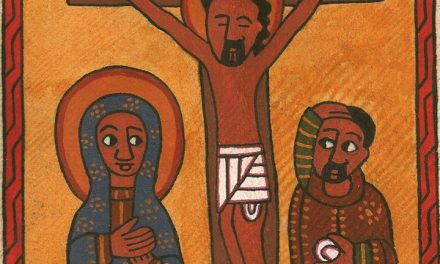Responsorial Psalm – Psalm 118:2-4, 13-15, 22-24
Second Reading – 1 Peter 1:3-9
Gospel Reading – John 20:19-31
This Sunday, the Second Sunday of Easter, is now known as Divine Mercy Sunday, a feast inaugurated in 2000, following the canonization of St. Faustina Kowalska, a Polish nun who had received visions of Jesus asking specifically for a feast day on the Second Sunday of Easter dedicated to the boundless mercy of God.
Certainly, the timing of the feast makes sense. Liturgically, we have just come through Lent and now participate in the joy of the resurrection. Jesus’s post-resurrection experiences, especially in the Gospel of John (from which this Sunday’s gospel reading comes), are filled with his acts of mercy.
Consider first his initial words to the disciples, “Peace be with you.” On one level, we can read this as a recognition of the anxieties that Jesus’s disciples must surely have been feeling after watching their teacher suffer crucifixion. This is peace in the sense of calming.
On another level, however, we must remember that Jesus’s disciples, with minimal exceptions, did not acquit themselves in ways that would have made them proud of themselves when the authorities came for Jesus. Against this backdrop, Jesus’s offering of peace was an offering of an olive branch, a reassurance that he was not going to hold their conduct against them. He was presenting mercy in the classic sense of forgiveness.
We see the same mercy on display in Jesus’s interactions with Thomas, whose doubts are met not with derision but with kindness. Jesus offers his very wounds to Thomas to not only see but also to feel because he does not hold Thomas’s incredulity against him. He responds in mercy, insisting that Thomas’s prior acts do not define him in Jesus’s eyes any more than the disciples’ desertion defined them.
The second reading puts these post-resurrection actions of Jesus in a broader context, explaining how the entirety of Jesus’s life—from Incarnation to passion, death, and resurrection—was an act of God’s “great mercy,” pour out on our behalf.
This vision of the vastness of God’s mercy and forgiveness is at the heart of the Feast of Divine Mercy we celebrate this Sunday. After all, the message St. Faustina communicated was that Jesus wanted everyone to know that they were never beyond God’s merciful love.
The impact of recognizing and receiving this mercy is a restoration of relationship. As Rowan Williams explained in some of his reflections on forgiveness, “When I am forgiven by the one I have injured, I accept both that I have damaged a relationship, and that change is possible” (Being Disciples, 41). The mercy of God celebrated on this Sunday is the mercy that transforms us in order to bring us back into relationship with God.
Our connection to God is not the only dimension of the transformation mercy can work, however. There is also a second form of restoration that grows from our renewed relationship to God, which can be seen most clearly in the first reading. It is a restoration of our relational links to our fellow humans, who equally must learn how to forgive and how to be forgiven (a point Williams emphasizes in his text).
This form of transformation leads to a second understanding of mercy, the one that Pope Francis explained is tied to the Latin root, “misericordis, which means opening one’s heart to wretchedness” (The Name of God is Mercy, 8).
This is the form of mercy that helps us see and feel the pain of others who suffer so that we will then go and do something about it. This is the mercy on display in the First Reading from Acts of the Apostles, which explains how the earliest Christian community worked together to care for one another and those in need. This is the mercy that gets translated into the Corporal Works of Mercy in the Catholic tradition, which calls attention to and addresses wretchedness when it is encountered.
Notably, there is a direct line between mercy as misericordis and mercy as forgiveness, for it is not a coincidence that the earliest followers of Jesus embodied this response to wretchedness after they had first received the mercy of forgiveness from Jesus himself. That restoration of relationship with God is also a reinvigoration, empowering our efforts to extend mercy—in all its forms—to those who need it most.
On this Divine Mercy Sunday, may we entrust ourselves to the mercy of God so that we can be merciful to others.





Trackbacks/Pingbacks